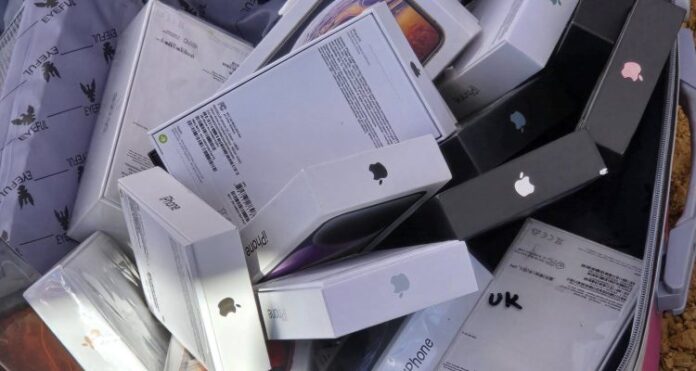Botswana has escalated its commitment to intellectual property (IP) rights and economic growth with the recent large-scale destruction of millions of dollars worth of counterfeit iPhones and earbuds by the Companies and Intellectual Property Authority (CIPA). This decisive action at the Gamodubu landfill signals Botswana’s firm stance against illicit trade, aligning it with a growing global movement to protect IP integrity.
However, the event has not been without controversy. On social media platforms, many Batswana have expressed displeasure with CIPA’s disposal of counterfeit and fake products. Critics allege that such events disproportionately affect poorer and lower-income households, who often rely on more affordable “fong kong” (fake) goods. They argue that these public destructions deflect attention from the real culprits—the larger importers of counterfeit goods—and fail to address the underlying economic disparities that drive demand for such products.
Despite the public debate, CIPA, mandated by the Industrial Property Act and the Copyright and Neighbouring Rights Act, has intensified anti-piracy campaigns and raids, conducting seven operations in two months. The public destruction serves as a powerful deterrent, sending an unequivocal message to infringers and criminal networks that IP violations carry severe consequences. It also reassures legitimate businesses and foreign investors of Botswana’s dedication to market integrity, enhancing investor confidence.
The global trade in counterfeit goods is a burgeoning problem, estimated to reach $4.2 trillion by 2025, with China as the dominant source. These fakes pose significant risks to consumer safety, undermine innovation, and lead to substantial financial losses for economies worldwide through lost tax revenue and job displacement.
Botswana’s robust legal framework, compliant with international agreements like the WTO’s TRIPS Agreement, is now being actively enforced. While challenges remain, including a lack of public understanding of IP and the prevalence of affordable “fong kong” goods, CIPA’s proactive measures aim to shift consumer behavior and bolster national development.
The crackdown on counterfeits directly supports Botswana’s strategic transition from a resource-based to a knowledge-based economy, fostering innovation, attracting foreign direct investment, and creating legitimate employment opportunities. Furthermore, by disrupting the financial lifelines of organized crime networks that often use counterfeiting to fund other illicit activities, these efforts enhance national security and public order.
To sustain this momentum, CIPA plans continued adaptive enforcement, enhanced public-private collaboration, targeted public awareness campaigns, exploration of sustainable disposal options for seized goods, leveraging technology for IP protection, and continuous capacity building for IP professionals. This multifaceted approach is crucial for Botswana’s long-term economic transformation and its ambition to become a regional leader in innovation and investment.



